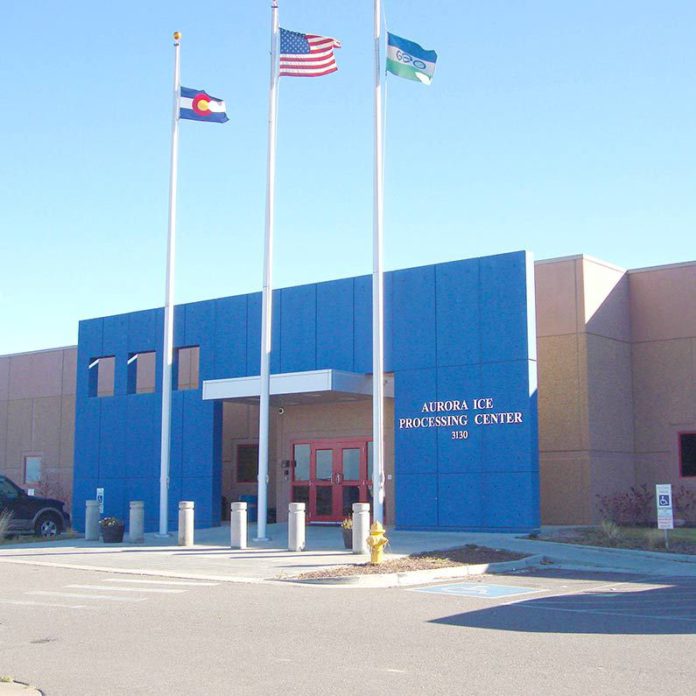
On Feb. 9, the 10th Circuit upheld a district court ruling that granted class certification to a group of more than 60,000 detainees from an Aurora Immigration and Customs Enforcement Processing Center, run by The GEO Group, Inc. Members of the class were all detained at some point between 2004 and now.
The class is represented by nine individuals who were detained and worked at the facility sometime between 2013 and 2014. A smaller class of roughly between 2,000 to 3,000 individuals were part of the Detainee Voluntary Work Program, and complaints allege they were paid $1 per day for work. The larger group comprises about 60,000 detainees who were forced to work without pay, cleaning the housing units and bathrooms of the facility.
According to the complaint, detainees were threatened with solitary confinement if they did not work, a “horrific kind of punishment,” Nina DiSalvo, executive director of Towards Justice said. The organization represents the class representatives in the suit.
“I think all academic research on [solitary confinement] suggests that we should as a country be using it less often and it would certainly be psychologically damaging to detainees,” DiSalvo said. “I think most of us, if we were rational, would prefer to clean a toilet than to go to solitary confinement for any length of time.” The suit argues that GEO violated federal forced labor statutes by coercing detainees to clean.
“All ICE facilities operated by GEO, including the Aurora ICE Processing Center, are highly rated and provide high-quality services in safe, secure, and humane residential environments that meet the needs of individuals,” a statement from GEO reads. “We intend to continue to vigorously defend our company against these claims.” The statement maintains that GEO’s voluntary work program at all federal immigration facilities are “directed by the federal government and governed by federal law.”
The original complaint also brought claims that GEO violated the Colorado Minimum Wage Order and the Trafficking Victims Protection Act. In 2015, the district court granted class certification for the two classes but denied the plaintiffs’ argument that GEO violated the CMWO, as they were not considered “employees” of the facility. The 10th Circuit decision affirmed the two classes: the smaller has brought claims of unjust enrichment, the larger has alleged GEO violated the Trafficking Victims Protection Act.
The TVPA, passed in 2000, prohibits the receipt of labor or services “by means of force, threats of force, physical restraint, or threats of physical restraint to that person or another person.” Colorado’s unjust enrichment laws require that a person prove that “the defendant received a benefit at the plaintiff’s expense under circumstances that would make it unjust for the defendant to retain the benefit without commensurate compensation.” The 10th Circuit ruling denied GEO’s argument that the unjust enrichment claims do not satisfy “commonality, typicality, predominance and superiority.” The ruling focuses primarily on the predominance piece of the law, which requires that “questions of law or fact common to class members [must] predominate over any questions affecting only individual members.”
GEO’s appeal of the district court class certification claimed the court abused its discretion in granting the class certification and violated rule 23(b)(3) of the Federal Rules of Civil Procedure.
The rule applies if “the court finds that the questions of law or fact common to class members predominate over any questions affecting only individual members and that a class action is superior to other available methods for fairly and efficiently adjudicating the controversy.”
GEO argued the claims of the individuals were “predominantly individualized determinations.”
“The 10th Circuit said very well the members of this class are scattered all across the country all across the world,” DiSalvo said. “The reality is that absent class certification, these people will never be able to seek justice.
GEO runs more than 50 facilities in a handful of states around the country, most located in southern Texas and California. The Aurora facility is the only one run by GEO in Colorado.
The suit stated that “GEO promised to create hundreds of quality jobs in Aurora,” a claim DiSalvo finds ironic.
The case will go back down to the federal district court to determine the merit of the complaint.
— Kaley LaQuea

